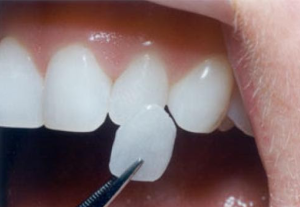How Long Do Dental Crowns Last?
Contents
- How Long Do Dental Crowns Last?
- How Often Should a Crown Be Replaced?
- How to Tell If a Dental Crown Has Reached the End of Its Lifespan
- How Many Years Does a Crown Last?
- Zirconium Teeth
- Habits That Shorten the Lifespan of Crowns
- Frequently Asked Questions
- What should I do to extend the life of my crowns?
- Can crowns develop cavities?
- My crown fell off, what should I do?
- Which is more durable: zirconium or porcelain?
Dental crowns are a popular treatment method used for both aesthetic and functional purposes. However, many people wonder how long crowns last and whether they eventually need to be replaced. The lifespan of dental crowns depends on many factors such as the material used, oral hygiene habits, and the quality of the dental procedure. So, how many years do crowns last, and when should they be renewed? Here are the details…

How Often Should a Crown Be Replaced?
How Long Do Dental Crowns Last?
The average lifespan of dental crowns ranges between 10 and 20 years. However, this period can be extended or shortened depending on the type of crown and oral care habits. Common types of crowns include:
- Porcelain crowns: Offer a natural appearance and can last up to 15 years.
- Zirconium crowns: Highly durable and can last 20 years or even longer.
- Porcelain-fused-to-metal crowns: Usually recommended to be replaced every 10–15 years.
Over time, crowns can wear down, change color, or become misaligned due to gum recession. That’s why regular dental check-ups are crucial for prolonging the life of your crowns.
How to Tell If a Dental Crown Has Reached the End of Its Lifespan
There are several signs that indicate it may be time to replace your crown. If you notice any of the following, consult your dentist:
- Cracks or fractures in the crown
- Gum recession or sensitivity
- Discoloration or dullness of the crown
- Bad odor from the mouth (could be decay under the crown)
- Crown no longer fits properly or feels uncomfortable
If you experience one or more of these symptoms, it may be time to replace your crown. Early intervention can help protect your dental health.
How Many Years Does a Crown Last?
The lifespan of a crown can vary depending on the following factors:
- Oral hygiene: Regular brushing, flossing, and professional cleanings help crowns last longer.
- Eating habits: Consuming hard foods or grinding teeth can shorten a crown’s lifespan.
- Bruxism (teeth grinding): Constant pressure on the crown can cause faster wear.
- Quality of dental procedure: Well-placed crowns made from high-quality materials last longer.
With proper care, crowns can typically be used without issues for at least 10 years. However, they should still be checked periodically due to natural wear and tear over time.
Zirconium Teeth
One of the most popular types of crowns in recent years is zirconium crowns. Thanks to their durability and aesthetic appeal, they can be used comfortably on both front and back teeth. Advantages of zirconium crowns include:
- Closest appearance to natural teeth: Reflects light like real teeth due to their opacity.
- Long-lasting: Can last around 15–20 years on average.
- Metal-free: A safe option for those with metal allergies.
- Gum-friendly: Does not cause gum recession or discoloration.
Zirconium teeth may be a good alternative for those seeking a stronger and more aesthetic solution. However, like any crown, they still require regular care.
To ensure long-lasting crowns, it’s not only important to follow a good care routine but also to avoid certain harmful habits. The lifespan of a dental crown depends not just on material quality, but also on individual habits. Here are some extra tips to help you use your crowns for a longer time without issues:
Habits That Shorten the Lifespan of Crowns
To prevent premature wear and tear, avoid the following habits:
- Nail biting: Can damage crowns and eventually cause them to break.
- Using teeth to open hard objects: Opening bottle caps or packaging with your teeth can crack crowns.
- Excessive coffee and tea consumption: Especially porcelain crowns may become stained over time. Regular cleaning can help prevent this.
- Smoking: Can cause yellowing of crowns and negatively impact oral health.
- Sugary and acidic drinks: Can lead to decay in the natural teeth surrounding the crown.
Frequently Asked Questions
What should I do to extend the life of my crowns?
- Brush your teeth regularly and use dental floss.
- Visit your dentist at least twice a year for check-ups.
- Avoid hard foods and teeth grinding.
Can crowns develop cavities?
Yes, since natural teeth remain underneath the crowns, there is still a risk of decay. Especially in cases of gum recession, decay can begin. That’s why good oral hygiene is essential.
My crown fell off, what should I do?
If your crown falls off, keep it clean and contact your dentist immediately. The crown may be reattached or replaced with a new one.
Which is more durable: zirconium or porcelain?
Zirconium crowns are more durable and longer-lasting than porcelain. They also provide a more natural appearance and do not contain metal.
In conclusion, the lifespan of dental crowns depends on many factors, but with regular care, a healthy and aesthetic smile can be maintained for many years. If you’re unsure about the condition of your crowns, consulting a dentist is the best course of action.
Follow us on Instagram: mercurydent
